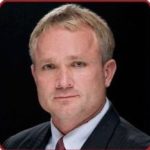Conversations Are Only Hard When You Make Them About YOU With Tim Reynolds, M.D.
Podcast: Play in new window | Download

We can only do so much by listening just to ourselves. Most of the time, we need to broaden our narrow perspective and start listening to others. Still with businessman, investor, and author, Dr. Tim Reynolds, Patrick Donohoe guides us into their discussion about finding others who think differently than you. Tim shares the value of having a team with different strengths and learning more about their character than their skills. Join into this conversation and discover how business is not such a lonely thing after all.
—
Watch the episode here:
Listen to the podcast here:
Conversations Are Only Hard When You Make Them About YOU With Tim Reynolds, M.D.
This episode is sponsored by the new and improved Financial Independence Calculator. One of the driving forces of human beings is freedom, which infers financial freedom, too. Years ago, I set out to discover how any individual, regardless of their financial situation, could evaluate their finances in five minutes or less and have a firm date when they could achieve financial independence. The latest version of this calculator, which is free for the audience, can be found at TheWealthStandard.com/calculator. The calculator is going to take you only a few minutes to complete and it’s going to provide you with a specific financial independence date. Go check it out.
The following five episodes are with businessman, investor, doctor and author, Tim Reynolds. If you are reading these episodes and want to watch the videos, go head over to TheWealthStandard.com. Make sure you check that out. A little bit about Tim. He is a former Green Beret in the Special Forces. He was a medic and also a Battalion Surgeon. He graduated from Texas A&M with his Medical degree. His specialization was Emergency Medicine. He was an emergency room doctor for several years and also co-started a company called HealthCARE Express. He has many locations throughout Texas, Oklahoma, Arkansas and Louisiana.
He has a book. You can check it out on Amazon. It’s called Living Every Minute. It’s also on Audible. He reads the Audible audiobook. Tim is an amazing guy. He’s one of the first original Platinum Partners with Tony Robbins. He has a love and zest for life throughout his book. It’s going to be throughout this interview. You can imagine in the roles that he’s played, he has experienced firsthand the fragility of life. He’s going to share some of those experiences throughout these five segments.
I want to forewarn you, this is a PG 13-ish interview. There’s some colorful language and there are also some relatively graphic stories that Tim tells. You are going to experience him, his heart and his passion for life. You can check his website out. It’s LivingEveryMinute.com. He has some personal development programs, courses and a lot of other resources that you will want to check out. Go head over there. Without further delay, let’s start episode one with my dear friend, Tim Reynolds.
—
My dad’s old. We visit them every year. They live on the East Coast on the beach. We were on the beach with a three-hour conversation around rules. Most people are so resistant but he realized that his rule to feel that he was significant, worthy and happy is he always had to be helping somebody else. Good on him because that’s his whole life. He does so much good for people. The thing he realized is number one, it’s a big burden to carry and he doesn’t allow people to help him. It hit me. It’s profound where we walk around with these rules.
If you only feel like it’s never good enough, then it doesn’t matter how good it is. Click To TweetI have the rule to pick up every check. Luckily, most of the people around me also think I should pick up every check. That’s not big of a problem but every once in a while, somebody else picks up the check. I almost get like, “This is how it’s used to be.” One day I realized, “Why is that?” For some reason, I created a rule that I should be the guy picking up the check. I wouldn’t allow anybody else not to realize that it was a favor to me. How did I make up that stupid rule? What a stupid rule but we all do that. We make up rules. I shared this with you before.
The major rule that I had to change was I have to be making everything better all the time. It’s a great rule. Honestly, if you think about it, I’m always trying to make things better. The person I was working with said, “What is the role of presuppose?” I presuppose that I will never be good enough. I was like, “That’s exactly how I feel all the time. Nothing is ever good enough,” and I never realized that. I thought it was a great rule. You are always making things better.
It’s a loop that you can’t get out of.
No matter how good it is, it’s never good enough. If you only feel like it’s never good enough, then it doesn’t matter how good it is. I had to readjust that rule and rethink that so I can say, “It’s good enough exactly as it is. The world is exactly as it’s supposed to be and let’s go make a better.”
What’s your new primary question? What are the simple rules you operate because it doesn’t mean that we don’t have rules? You didn’t get rid of every rule. We try to create rules to get us what we want.
I changed that role to, “How can I be content and ambitious simultaneously?” I’m smart enough that I can say, “I’m perfectly happy with exactly as I am financially, health-wise and relationships-wise. If nothing changed, I’m so blessed.” That’s what it is. Let’s go create and be able to do both of those things. Before I had the, “Let’s go create,” but I didn’t have the, “I’m very content with exactly where I’m at right now,” and that’s a gratitude thing. I was grateful but I wasn’t grateful that the world was exactly as it is.

Conversations: You need people in your life who are willing to call you out.
You had said something before. Do you find it easy when a person is trying to go through these exercises on the road? Even though it’s simple in theory, oftentimes there are limitations but when they are going through an exercise with someone else, that’s when people can have more epiphanies. This has been my experience. Is it pretty easy for a person when they are going through these exercises to recognize the rules, accept them, and then move on or is there typically resistance to it?
It’s a combination. You have probably had the same experience. Stephen Covey used to say, “You have to win the inner battle before you can face the outer battle.” You have to win the man inside or the woman inside before you can face the outside. A lot of the revelations or a-ha moments that you will have will be with yourself during your own thinking, meditation, prayer or whatever you call that. I also think there’s a limitation of how far you can go on your own.
That’s why I recommend it in the book and I know you are a big advocate of this, too. Find some mentors or groups that you can go out to or whatever mentor you like and go learn from some other people too both live and through reading and listening. My secret to success has to be, you don’t have to do it all on your own. There’s plenty of people who have treaded the path before you and you can learn from them not only what to do but sure as heck what not to do. Don’t step on that landmine. That’s a big one. Trust me, I stepped on it.
Going through that and I love this analogy of Tiger Woods has a golf coach. He can beat his golf coach in golf so why would he need a coach? Here’s the reason. Tiger cannot see himself swing. He can’t see the golf club. You need somebody to look at you who’s objective, who’s not trying to sell you something. Who can tell you, “If you turn your foot a little bit, I think everything will get better on your swing.” You need people in your life who are willing to call you on your ship. You need somebody and as you get better, richer and as you get higher in your status in life, it’s harder and harder to find people who are willing to tell you that your breath stinks. You need somebody willing to tell you, “You need a Tic Tac.”
It’s two things. It’s somebody willing to do that and you willing to accept it.
Even if you are willing to accept it, it’s hard to find somebody willing to do it. It’s hard to find somebody who works for you who can be completely honest because even if they don’t know, there’s a secondary agenda. It is not an equal relationship when somebody calls you on your crap.
There’s a limitation of how far you can go on your own. Click To TweetCandid conversations are not part of society. When candid conversations happen, there’s never an objective response or an objective filter that the criticism goes through, which is interesting. Trial and error get a person eventually to the point where they realize that another person’s perspective is another perspective. It doesn’t mean it’s right or wrong but it could be helpful.
We don’t have to and that’s the thing. If I tell you, “Those jeans just don’t look good on you.” If I were to tell you that, it doesn’t mean I’m right. It means you should go, “I like them. Thank you for your opinion,” but be willing to be open to that idea because what we tend to do is get very defensive. I have sat on boards for many years and every time the CEO of a company or whoever is being interrogated, if you will, as a board member, the automatic response is to become defensive.
The objective with the board over time is to say, “Instead of being defensive, including me, by the way, because it’s hard when somebody tells your baby is ugly but instead of being defensive if you can listen and say, “That’s interesting.” It doesn’t mean they are right but it’s worth listening to. This is the key. It’s that emotional bank account you talked about. If you know I have your best interests at heart, it’s easier for me to say something. If you are not sure I have your best interest at heart, then if I say something, you don’t take it the same way.
Also, if you say something that will placate somebody. This is an experience where a big company and I know the CEO well. He’s gone through executives over and over. His executives are yes men. As much as the idea of receiving feedback and perspective from someone else, we also have to realize that our view of the world is one way. It’s pretty narrow because every single person on Earth has a different perspective of life. Sometimes there are similarities but usually, it’s a little bit different. You are complimenting personalities, whether it’s business acumen, marketing acumen or entrepreneurship. Tony talks about the personas, the entrepreneur, the artists, the tactician or the manager. You have different strengths and personalities. Sometimes, we think we need to know everything and it’s not reasonable.
We surround ourselves with people like us.
Again, it reinforces a narrow perspective. It makes it stronger. When you understand that other people have strengths, abilities and uniqueness that can broaden a perspective and strengthen it, it creates a superpower in anything. Not just in business but in most aspects of life. You use coaching in sports.

Conversations: When we hire people, we hire them for their skillset, and we forget to ask them about their character.
It’s a huge a-ha moment the day you realize that I need to surround myself with people who are not like me. It was big for me. I’m not a dot the I and cross the T person so I need to surround myself with people who are exactly like that. In the beginning, I was hiring and working with people who were like me. The big pitchers, thinkers, creators, strategy, all that stuff and nobody did the work and the work has to be done.
The a-ha moment is when you say, “I need somebody who is opposite of the way I think who thinks this way, which I couldn’t do.” We have our main headquarters that run our companies. It’s called Oz as in Wizard of. When I walk around Oz, I walked to every office and go, “That person is smarter than me in what they do.” They are all smarter. I couldn’t do any of their jobs. Once you realize that, everything changes. In the beginning, especially if you are an entrepreneur, you think you have to know everybody’s job even better than they do.
In the beginning, that’s probably true. If you are starting a small company, you are the only guy and you are everything, you probably do know everything better than everybody. If you are going to skip that thing, if you are going to make it bigger, you have to be your specialist, which is being, “I’m the guy doing this. I don’t know how to play the violin. I don’t know how to play the oboe but I can conduct the orchestra. Nobody who can play the instrument can conduct the orchestra as I can.”
What’s amazing about the book is you have principles that you teach but you have a myriad of stories to illustrate how that plays out in real life. Maybe along these lines when it comes to you recognizing the value, the importance of a team with different strengths in the roles of team members. I would assume Special Forces is probably a good example but through business, how have you discovered that and understood that value?
Of having their strengths?
Having people surround you. Did you have to learn the hard way or did you get taught by somebody?
We fire people because of their character, rarely because of their skillset. Click To TweetI’ve got lucky going into Special Forces in the beginning because it’s such a unique environment. If you are in a Green Beret team room, I always use this analogy so people can understand. We will go steal from everybody else. When I say steal, I’m talking about jokingly take things from people and not like robbing a bank. In the team room, I could put $10,000 cash on my bed. I could leave for three months, come back and that $10,000 cash would still be there. I have no doubt about it. It’s 100% guaranteed. That’s the environment. Luckily for me, I was raised, at the age of eighteen, it was instilled in me very early.
The other thing on a Special Force A-Team is everybody has their role. I was the medic. We had a weapons guy, heavy weapons guy, demolition and the commander. Everybody is counting on everybody else to do their job because if you don’t, you die. The brotherhood is high because the stakes are high. I have carried that with me through business entrepreneurship to say, “I want an inner circle that feels like that. I want an inner circle that feels like a group of people.”
My inner circle, the people I was talking about, I guarantee you at 3:00 in the morning, I could call my CFO, Amanda and say, “Amanda, I need you at my house in 30 minutes.” She wouldn’t say, “For what?” She will say, “I will be there.” A stolen analogy, “We need to bury a body,” and you say, “Who’s driving?” You don’t say, “What happened?” That comes from what you said. We have been together for many years. I have poured so much into her and the whole team that you develop that relationship, which is why it’s so hard. The answer to the question is I don’t think it has anything to do with their skillset. It has everything to do with their character.
We mistakenly think it’s about their skillset. When we hire people, we hire them for their skillset and we forget to ask them about their character. We fire them because of their character, rarely because of their skillset. How often have you fired somebody because they couldn’t do the job? It’s 1% of the time that this person can’t do the job but it’s rare. Usually, it’s a character flaw and yet we hire on skills and we fire on character. It’s backward a little bit.
If I were to say the one thing I have learned over time is to interview a lot more about their character. You can always teach them the skills. They have to have some skills. As Jim Rohn used to say, if you have an idiot running around like crazy, running as fast as he can East looking for the sunset, he’s not a motivated idiot. They do have to have the skillset but the skillset is probably less important than the character. When you are building a company or an organization of any kind, think about, “Is this a person whom I would go to war with? Is this a person whom I would get in the foxhole with?” If they are, the rest is all you can figure.
Important links
- TheWealthStandard.com/calculator
- HealthCARE Express
- Living Every Minute
- Audible – Living Every Minute
- LivingEveryMinute.com
About Tim Reynolds
 Dr. Tim Reynolds is the President and CEO of Dr. Tim, International, a company he founded in 2009 to allow him to share his passion for Living Every Minute with others.
Dr. Tim Reynolds is the President and CEO of Dr. Tim, International, a company he founded in 2009 to allow him to share his passion for Living Every Minute with others.
Dr Tim was a graduate of the Special Forces Q-course in July of 1982. He served as a Green Beret medic on an A-Team, as the Battalion medic and eventually as a Special Forces Battalion Surgeon for the 19th Special Forces Group (Airborne). He served both enlisted and as an officer from 1980 until 2000.
Dr. Tim graduated Summa Cum Laude with an MD degree from the University of Utah in 1993. He completed his Emergency Medicine residency at Texas A&M Scott and White in 1996 and is board certified in emergency medicine. Dr. Tim is the managing partner for HealthCARE Express, a group of urgent care clinics rapidly expanding across the United States.
Prior to starting HealthCARE Express in 2006, Dr. Tim held numerous positions across the medical field, including: medical director of the Wadley Regional Medical Center Emergency Department and level II trauma center; director, Texas College of Emergency Physicians Board of Directors; president of E-Med Services, LLP and of E-Med Billing Solutions, LLP; associate clinical professor for the Area Health Education Center at the University of Arkansas; founding member of the Greater People’s Clinic of Texarkana Board of Directors.
Dr. Tim is also an entrepreneur and successful businessman. He is currently the chief executive officer of TL Reynolds Properties, LLP, a real estate investment company; and he is a managing partner of JJET Developments Ltd., a real estate development company.
Dr. Tim enjoys spending time on his Ranch in Atlanta, Texas, where he lives with his wife, Pam, and their five amazing children. He holds a black belt in Tae Kwon Do, is a SCUBA rescue diver, and a pilot. He also enjoys body building, golf, and hiking.
Love the show? Subscribe, rate, review, and share!
















